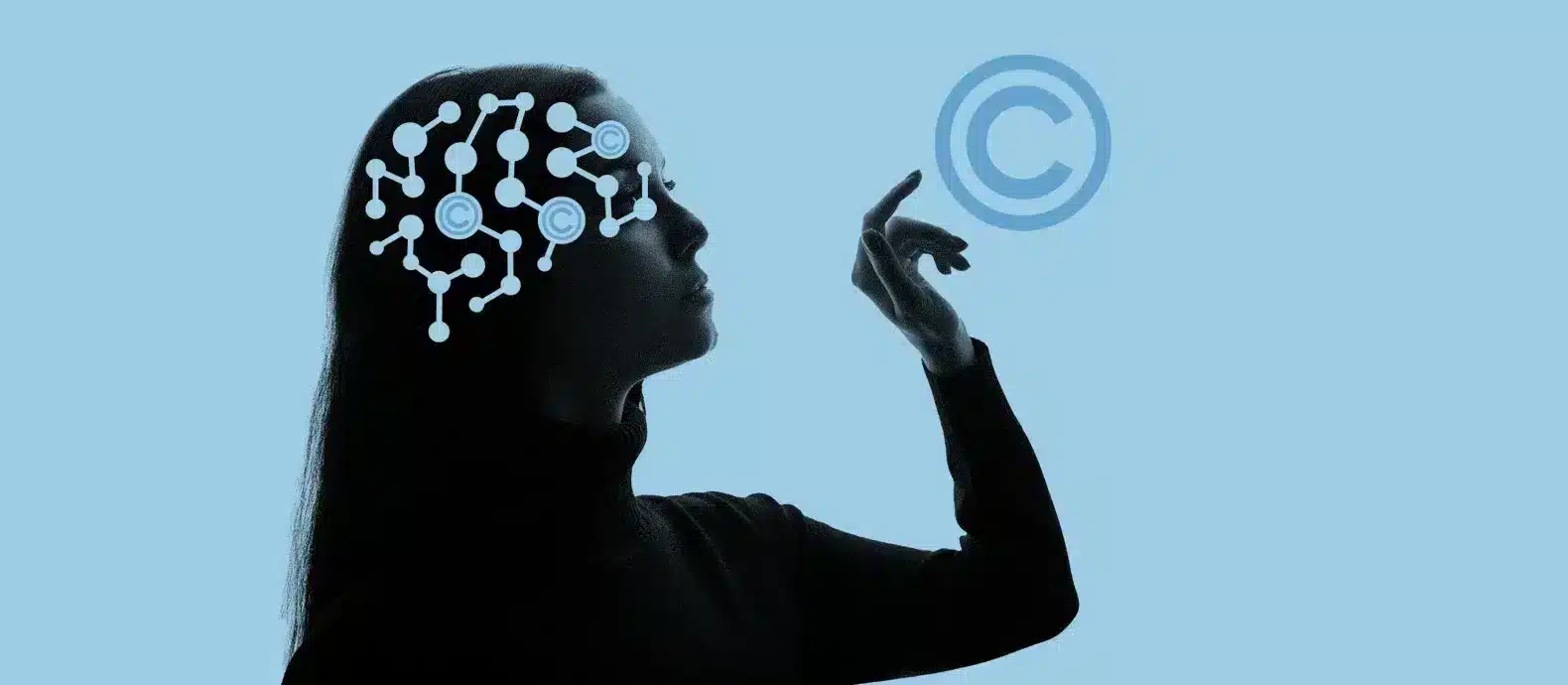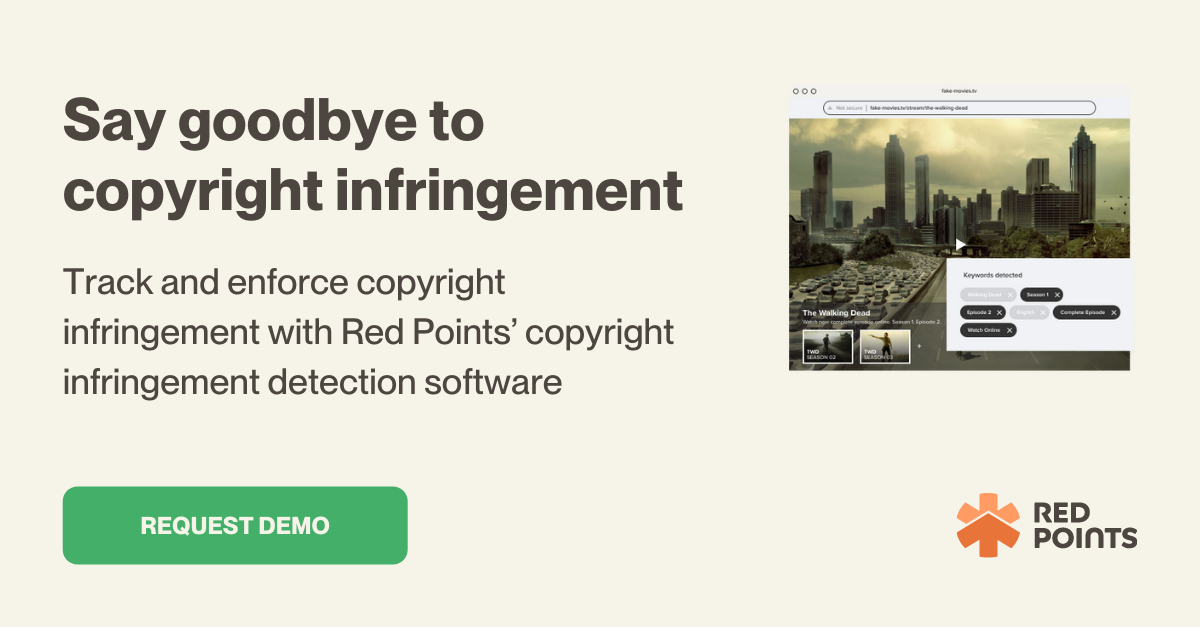
Table of Contents:
Last updated on: February 26, 2024
The use of generative artificial intelligence over the past year has exploded, in everything from legal research to planning healthy meals. While AI has captured the public imagination, concerns about copyright still need to be resolved. Artists, writers, and other content creators have brought lawsuits alleging AI copyright infringement, and AI users have begun grappling with how to use generative AI tools without infringing others’ intellectual property.
But is AI copyright infringement a new problem, or just a new chapter in hundreds of years of copyright law? This article gives an overview of the key questions and how the answers might impact creatives and the public.

Simply put, copyright law is old. It has adapted to new technologies for centuries. What we think of as copyright law today arose from the early printing press. In the United States, the idea of copyright was included in the Constitution and the first copyright legislation was passed in 1790.
So why shouldn’t current copyright law be able to cover AI?
Many argue that the same rules that apply to any other alleged copyright infringement should apply to AI copyright infringement.
On the other hand, governments and experts are considering whether new laws and regulations are necessary to protect creators and others affected by AI. For example, at the time of this article, the United States Copyright Office is studying the issue to see if laws or regulations are needed.
Some of the questions include whether and how copyright infringement by means of AI output differs from ordinary copyright infringement and what protections are available for authors and artists who use AI in creating their works. This article considers these questions.
According to a number of pending AI copyright infringement lawsuits, the answer to this question is “yes.” The more nuanced question is not whether AI can infringe but how AI can infringe.
First, the simpler question is whether AI-generated works can infringe copyright. This is a relatively straightforward question that will look at the established legal framework for copyright infringement. In the U.S., courts consider whether the two works are substantially similar.
Second, the more complicated question is whether the use of copyrighted works as source materials in itself can be infringement.
In some ways, AI simply does what generations of creators have done: views source materials and creates new works based on their influence. For example, a human artist creating a new work “in the style of” another artist is not, without more, an infringer.
Unlike the human artist, AI may have access to thousands or even millions of copyrighted works that the AI company has scraped from the internet as source materials. Courts must consider whether copying these underlying works for use in creating new AI-generated works is copyright infringement.
Resolving cases like these will likely come down to fair use, which permits copying in certain circumstances. In the U.S., courts will consider the following four factors:
Pre-AI cases on large-scale copying can shed some light. In 2015, the Second Circuit Court of Appeals decided Authors Guild v. Google, Inc. The case involved Google’s copying of “tens of millions of books” to make short portions of the books – called “snippets” – available in its search engine. Even though Google had copied entire books, the court found that the copying for the purpose of making snippets available in search results was allowed under U.S. copyright law as fair use.
In Google v. Oracle, the Supreme Court held that Google’s copying of 11,500 lines of copyrighted computer code – out of around 2.86 million lines – was fair use because no more was taken than what was necessary to transform the work into a new program.
One of the major challenges around AI copyright infringement is uncertainty. For owners of copyrighted works claiming that AI has infringed their copyrights, there is little precedent. Some cases to watch in the U.S. include:
On the other side of the coin, artists who use AI to help create art, music, written works, and more might have trouble protecting what they create.
This question comes down to who – or what – can be considered an “author” for the purpose of copyright protection. In guidance issued in March 2023, the Copyright Office took the position that the term “author” “excludes non-humans.”
The U.S. Copyright Office has refused registration to entirely AI-generated works. For example, it limited copyright protection to the human-generated elements of a book containing AI-generated artwork and to the book as a whole but found that the AI images were not protectable by copyright.
The Copyright Office guidelines also state that, when works are generated with the help of technology, it will consider on a case-by-case basis whether the AI or other technology was simply an “assisting instrument” and a human selected and arranged the artistic elements, or if, the other hand, the expressive elements like selection and arrangement were the work of AI. If the AI was responsible for the expressive elements and the human merely inputted a prompt, that would not be copyrightable.
Creators who use AI should be careful to understand how much of the works are AI-generated and know that, under current law in many important jurisdictions, this may affect their ability to enforce rights in the works.
Many artists do not have the resources to take on generative AI in court and may be wondering whether quicker (and less expensive) procedures are available.
Particularly, what can be done about AI copyright infringement through platforms like Etsy? According to a 2023 article from the Washington Post, Etsy does not prohibit sales of AI-generated products.
As creators are likely aware, platforms including Etsy, eBay, and others have takedown policies for claimed copyright infringement. That is, copyright owners already have a procedure to ask platforms to remove claimed copyright infringement, whether it is generated by AI or not.
Often, however, takedown procedures are simply not equipped to make complex judgment calls about what is or isn’t infringement. Therefore, these takedown procedures are not likely to be a good fit for the more complicated questions of copying for training materials discussed above.
With its ability to analyze massive amounts of text and data, AI systems have great potential in intellectual property enforcement. Current AI solutions can not only identify copyright infringement but also assist with takedown notices and other enforcement efforts.
Red Points Copyright Infringement Protection solution is designed to scan the surface web, identifying potential infringements efficiently. It also aids in the execution of enforcement actions, such as issuing takedown notices. The AI-driven approach of this solution ensures a comprehensive and proactive stance in protecting intellectual property rights across various digital platforms.
So, is AI copyright infringement a problem? The sheer scale of potential copying along with the legal uncertainty is causing significant concern among creators. In the coming months and years, some of the current questions about AI copyright infringement may be answered and new questions will arise. As this article suggests, there are unresolved issues both for creators whose materials are used to train AI and for those using AI to create new works. Learn more about how our AI tools can help identify and enforce your company’s IP rights. Request a demo a start safeguarding your copyright online.
